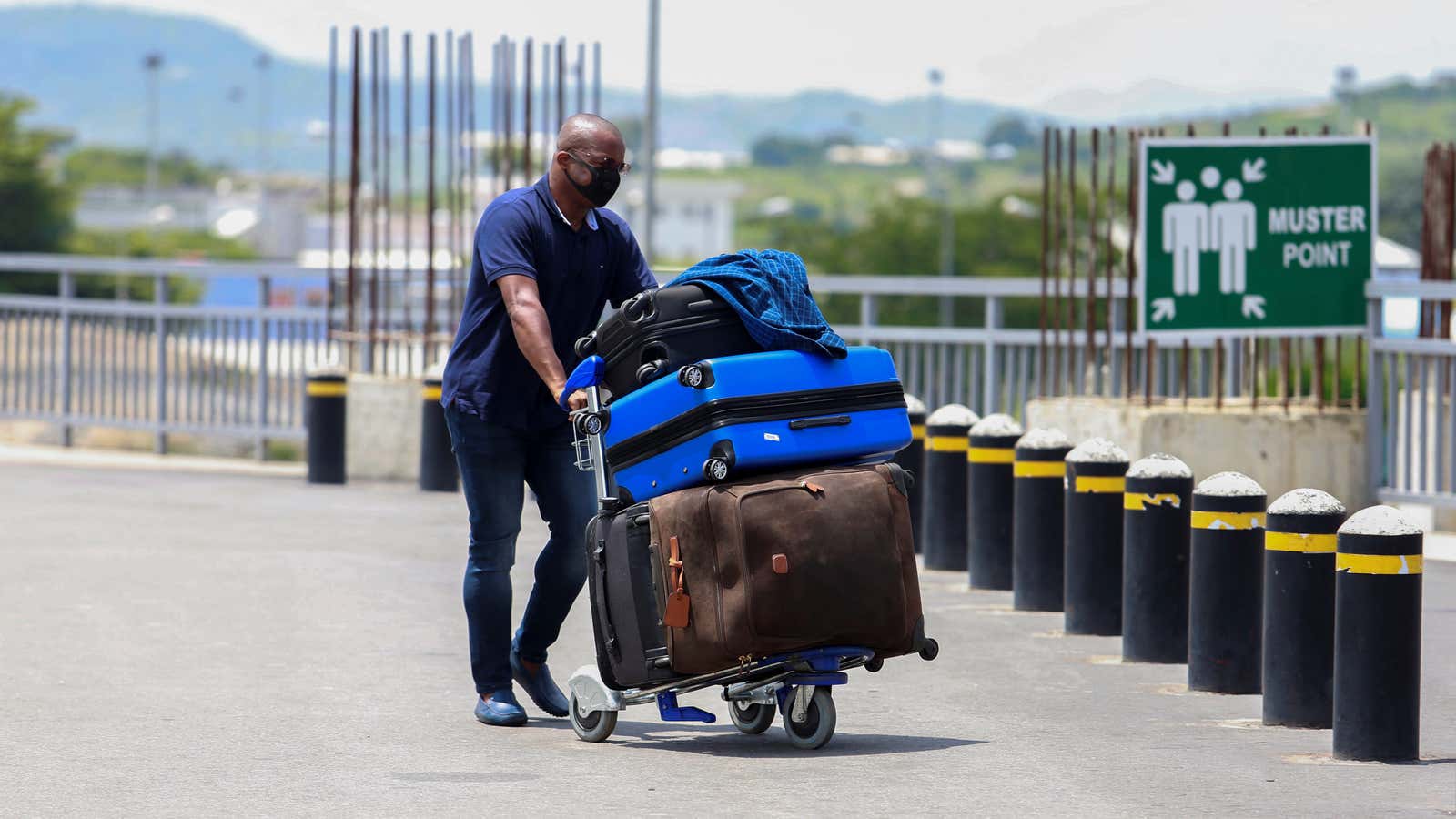The UK will stop processing applications for visitor visas from Nigeria because, according to the UK, travelers from Nigeria have contributed 15% of its omicron cases as of Dec. 5.
In a statement announcing the suspension, the UK said prospective travelers can still apply for visas but they will not hear back from the immigrations unit on the status of their application, nor will they be refunded if they have provided biometric details during the application process.
The UK issues visitor visas for such needs as visiting friends and family, tourism, business meetings, studies for less than 6 months, and for private medical treatment. But except for British and Irish citizens living in Nigeria, requests for any of this will be left in limbo.
The visa suspension affects applications from Nigeria and 10 Southern African countries on the UK’s covid-19 red list. Nigeria’s addition to the list today (Dec. 6) comes less than a week after first cases of the omicron variant were reported in the country. Ghana reported cases on the same day but is not on the UK’s red list.
UK’s omicron travel ban is entirely African
Though the UK said the visa suspension is temporary (submitted applications will be responded to at some point), it draws attention to the fact that only African countries are on the UK’s red list for a variant spotted in at least 45 countries, including developed European economies like Denmark where 183 cases were reported on Dec. 5.
Atedo Peterside, a prominent former bank CEO and Nigerian government minister, questioned the idea of a travel ban that discriminates between Nigerians and British people. Akinwunmi Adesina, president of the Africa Development Bank, wondered why travel bans applied only to Africa when omicron has been found in other countries. “Singling out African countries is very unfair, non-scientific and discriminatory,” he said.
The visa ban, even if temporary, is also a reminder that Africans are often twice as likely to be denied UK visas than people from other continents, as a 2019 report by British lawmakers found. If that was the case before the pandemic, the fears now are that requirements for African travelers will become more onerous.
Sign up to the Quartz Africa Weekly Brief here for news and analysis on African business, tech, and innovation in your inbox.
